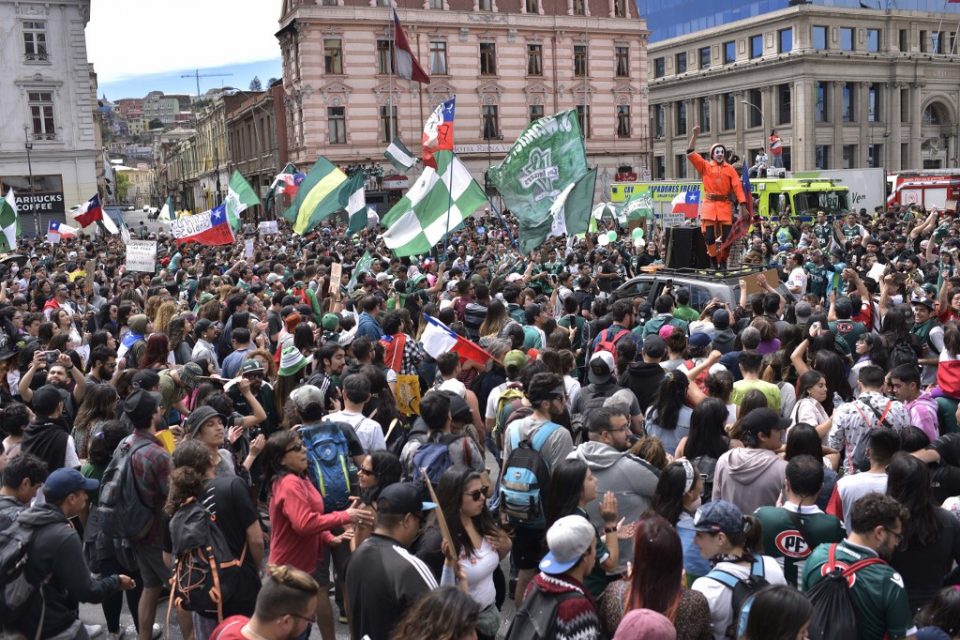
SANTIAGO, Chile (AFP) — Embattled Chilean President Sebastian Pinera announced on Sunday that a state of emergency that has lasted more than a week amid mass protests would be lifted at midnight.
The decision, just two days after more than a million people took to the country’s streets demanding economic and political change, comes after the equally unpopular week-long nighttime curfews ended on Saturday.
Authorities imposed both the state of emergency and curfews last weekend after Chile was rocked by its worst civil unrest in decades.
What originated as a student protest against a modest hike in metro fares quickly got out of control as demonstrations turned deadly.
A message on the presidency’s official Twitter account said the state of emergency, which had seen 20,000 soldiers and police deployed on the streets, would end “in all the regions and towns where it was established.”
This measure comes a day after Pinera said he’d “asked all ministers to resign in order to form a new government.”
“We are in a new reality,” Pinera said on Saturday. “Chile is different from what it was a week ago.”
The government has been struggling to craft an effective response to the protests and a growing list of economic and political demands that include Pinera’s resignation.
The breadth and ferocity of the demonstrations appeared to have caught the government of Chile — long one of Latin America’s richest and most stable countries — off guard.
By Saturday afternoon, the military presence in the capital Santiago had been already visibly reduced.
The week of unrest began with an initial burst of violence as protesters and looters destroyed metro stations, torched supermarkets, smashed traffic lights and bus stops, and erected burning street barricades.
At least 19 people died in the worst political violence since Chile returned to democracy after the Augusto Pinochet dictatorship from 1973-90.
© Agence France-Presse







